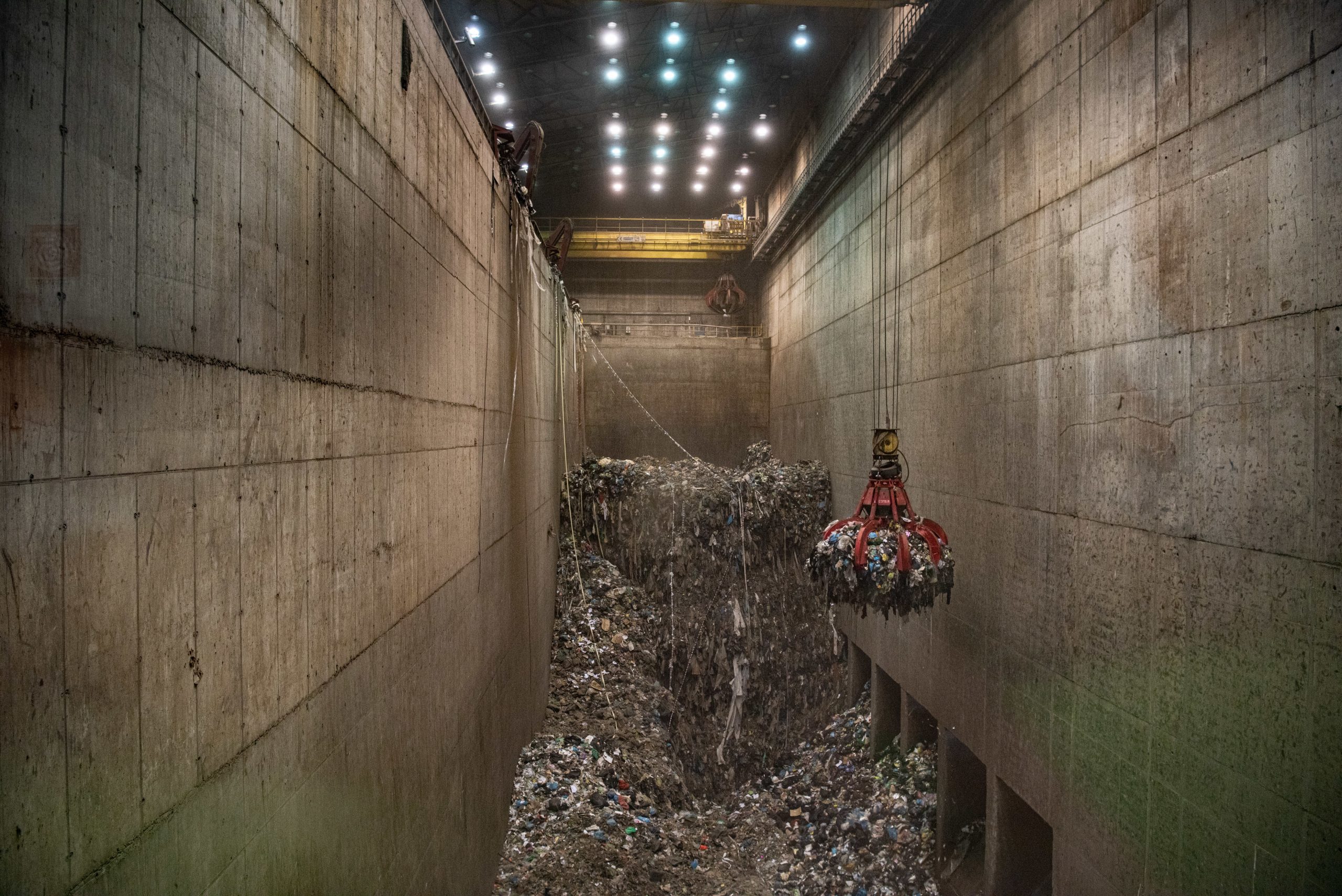
Edinburgh Council shirks waste emissions responsibility
Edinburgh Council claims to have reduced the city’s carbon emissions dramatically by diverting waste from landfill, but it has omitted the emissions from incinerating the waste instead and failed to keep promises about the energy that would be generated from the plant.
Edinburgh Council signed a 25-year contract with FFC Environment to burn waste at Millerhill incinerator, and promised to heat local homes and businesses using the incinerator’s waste heat which has not happened.
It claimed a “60% reduction in emissions is mainly due to the large reduction in Council waste going to landfill” in its 2019/20 Public Bodies Climate Change Duties report.
It does not mention the carbon impact of burning the waste instead. By ignoring the emissions from incineration, Edinburgh Council has made an unfair comparison between burning and landfilling waste. This has led to them swapping one high carbon waste strategy for another.
Recycling rates in Edinburgh are now declining, as incineration rates soar to the second highest in Scotland.
In the same report, Edinburgh Council claims by burning the waste, Millerhill “provides for the reuse of waste heat from the combustion process as the surrounding area develops”. However, Millerhill does not export waste heat yet, so the council is claiming environmental benefits where they do not exist. Heat network plans for the plant have not received planning permission yet. The £20 million project (including £7 million public funds) is expensive and will only save 2,000t CO2e per year.
Kim Pratt, circular economy campaigner at Friends of the Earth Scotland said: “Edinburgh Council has found a way to remove a large proportion of its carbon emissions from its records, but they have not actually disappeared or stopped contributing to the climate crisis. The council’s 25-year plan to burn the city’s waste does not value people, the environment or materials. It makes national net zero targets and ambitions to become a circular economy more difficult to reach.
“Promises to use the heat from Millerhill are being acted on too late – the plant has been fully operational for more than two years but the heat network has yet to be given planning permission. It will be many years before the heat from Millerhill can start heating homes and businesses.
“We’ve seen a drastic increase in incineration in Scotland, and this case demonstrates why it is such a bad way of dealing with waste. The Scottish Government is holding a review on incineration which includes a moratorium on new and current applications for incinerators which will cover the length of the review. A permanent ban on new incineration and an exit strategy for existing plants is needed to end this polluting practice in Scotland.”
Data on household recycling rates published by SEPA show that Edinburgh’s recycling rate in 2019 was 38.6%, well below the national average (44.9%). It also had the second highest incineration rate in Scotland (56.9%). In 2016, the city’s recycling rates were higher, at 44.6%.
Image credit: Simon Tramonte – Climate Visuals Countdown
Edinburgh Council’s Public Bodies Climate Change Duties Report 2019/20 https://democracy.edinburgh.gov.uk/documents/s28661/Item%207.3%20-%20Public%20Bodies%20Climate%20Change%20Duties%20Report%202019-20.pdf
Heat network plans for Millerhill: https://group.vattenfall.com/uk/newsroom/pressreleases/2020/midlothian-council-and-vattenfall-launch-new-energy-services-company
Heat network planning permission submission: https://planning-applications.midlothian.gov.uk/OnlinePlanning/applicationDetails.do?keyVal=R0WDTHKVGXH00&activeTab=summary
SEPA household waste data 2019 https://www.sepa.org.uk/environment/waste/waste-data/waste-data-reporting/household-waste-data/
FoES briefing on incineration: https://foe.scot/resource/incineration-briefing/
Friends of the Earth Scotland is:
* Scotland’s leading environmental campaigning organisation
* An independent Scottish charity with a network of thousands of supporters and active local groups across Scotland
* Part of the largest grassroots environmental network in the world, uniting over 2 million supporters, 73 national member groups, and 5,000 local activist groups.
